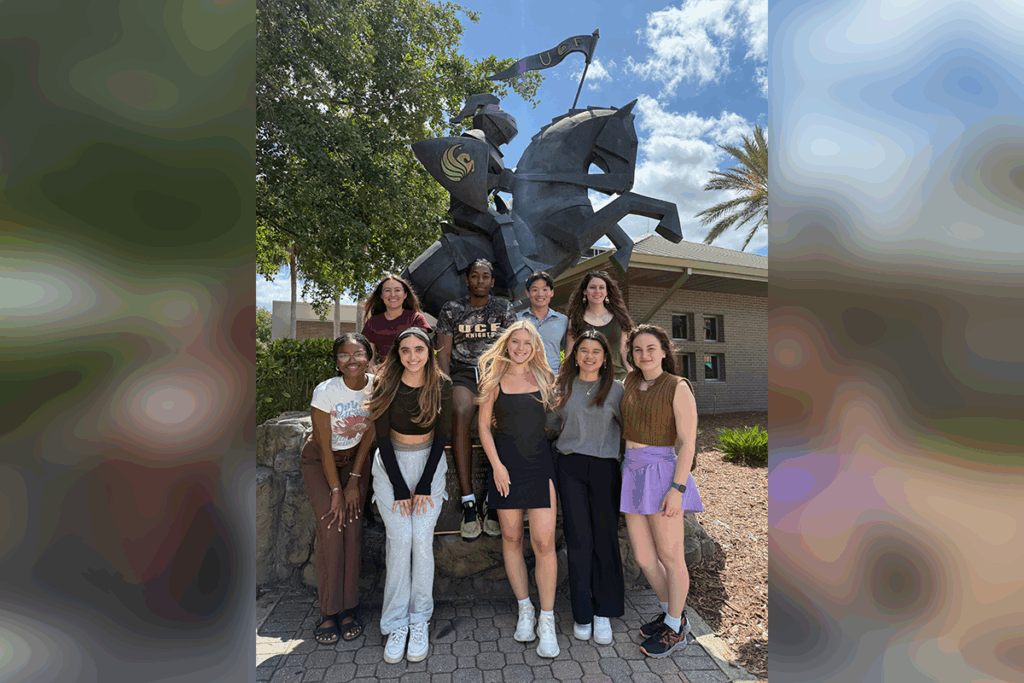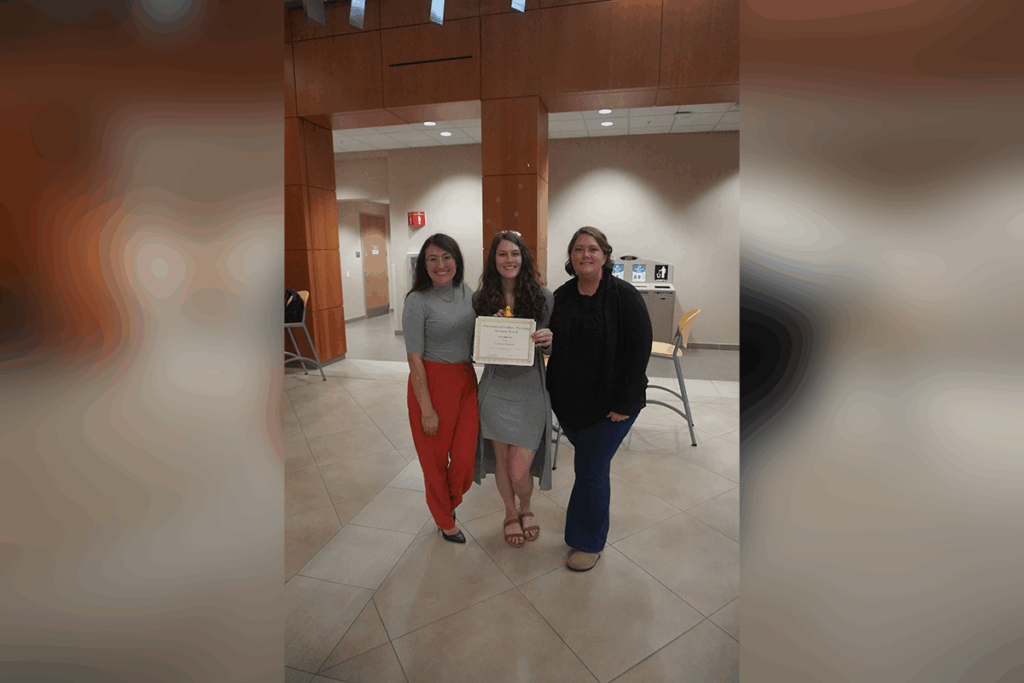New UCF Study Reveals Opportunities to Boost Confidence in Undergraduate Students
The College of Sciences’ Department of Chemistry published new research showing how professional identity evolves through students’ academic journeys.
Written by: Emily Dougherty | Published: July 21, 2025

A newly published study in the Journal of Forensic Science Education from the College of Sciences Department of Chemistry reveals how undergraduate forensic science students’ confidence shifts throughout their academic journey.
Led by chemistry Associate Lecturer Nicole Lapeyrouse, in collaboration with Associate Lecturer Tamra Legron-Rodriguez, Graduate Teaching Assistant Cameron Bechard, and undergraduate student, Abigail Castillo, the study examines how confidence levels change throughout a forensic science student’s academic journey. Through this research, they discovered that students in their final year report feeling less confident about their futures as professionals than students just starting their academic journeys.
“We were inspired to create this project to help strengthen students’ professional STEM identity and retention by understanding factors that influence their connection to their field of study,” says Lapeyrouse on behalf of the research group. “Students’ identity in their major is crucial for them to persist in their chosen major.”
The study collected both quantitative data through survey questions and qualitative responses to open-ended prompts and compared those from 34 students in introductory courses with 28 students taking a senior-level capstone course.
While first-year students tended to be more optimistic about their futures, the findings show that upper-level students showed less confidence in their future as professional forensic scientists. Many students’ levels of confidence were affected by external factors, such as financial concerns, job availability, and uncertainty about entering the field.
“This study found that 40.7% of students discussed occupation and financial insecurity,” Lapeyrouse says. “We observed that upper-level students’ confidence comes from how they perceive themselves as prepared and successful professionals. They may not have had direct experience in the field of forensic science, such as volunteering or internships, which could affect their confidence.”

While the findings were surprising, Lapeyrouse says that it makes sense, given that real-world experience often doesn’t occur until just before graduation with many students receiving their internship in their final semester. There are promising approaches that boost student confidence.
Lapeyrouse explains that in UCF’s forensic science program, students who are in the beginning of their academic journey are given the opportunity to get a head start.
“Students report interactions with professionals have broadened their understanding of the various career pathways available within their fields, as well as providing guidance on best practices to prepare themselves for their profession,” Lapeyrouse says. “Here at UCF, the Introduction to Forensic Science course uses this approach by inviting many different guest speakers to engage with students early in their forensic courses. Our data indicates that the forensic science students really value the insight and information these guest speakers provide,”
She also says that these insights extend to other areas of science. STEM students can benefit from earlier and more sustained engagement with professionals in their fields. Doing so helps students clarify their academic and professional goals, understand the job market, and gain confidence in their own professional identity.
“Expanding on this idea by offering similar interactions for students across other STEM disciplines could foster greater career readiness by equipping students with the knowledge and guidance necessary to make informed decisions about their future careers,” Lapeyrouse says.
